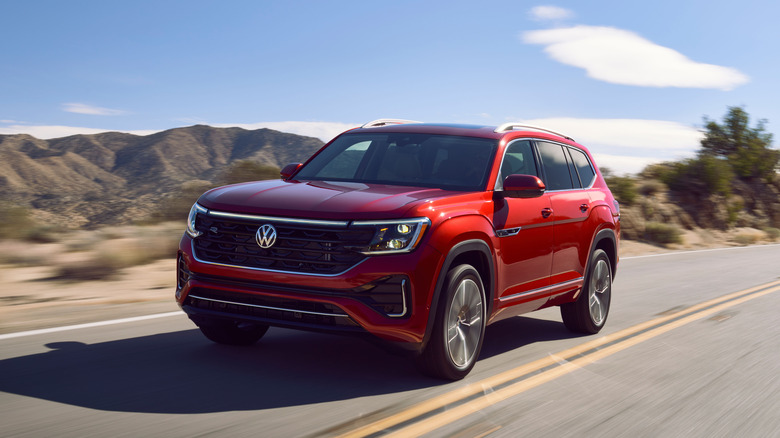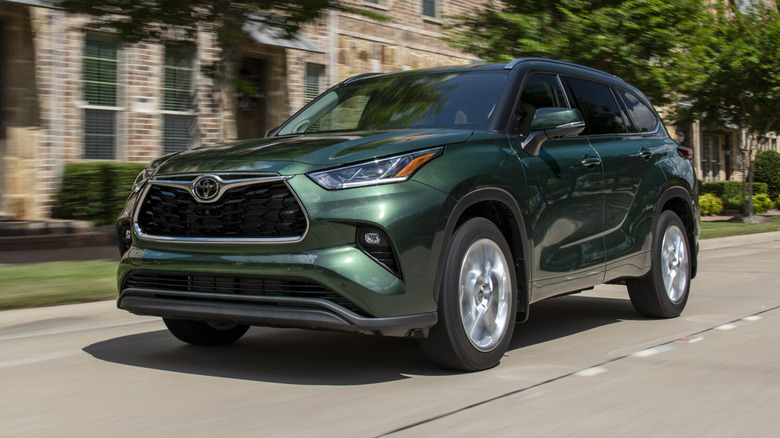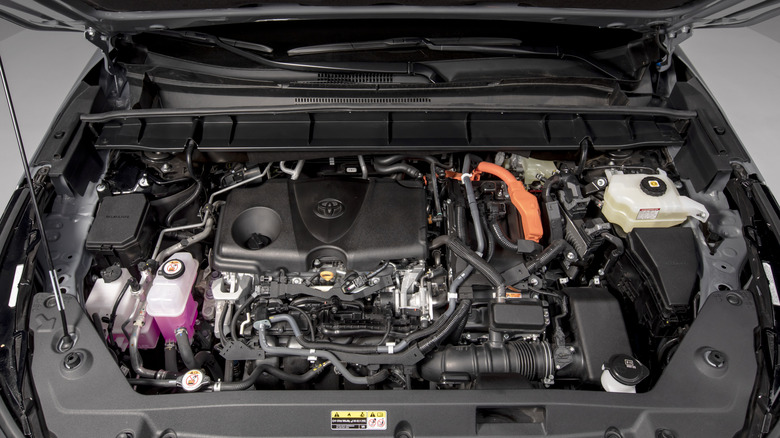Volkswagen Atlas Vs. Toyota Highlander: Which Is Bigger? (And Other Differences, Explained)
Size matters when hauling kids and gear. The Volkswagen Atlas and the Toyota Highlander are a pair of midsize crossovers in a highly competitive segment. The Atlas joined VW's U.S. lineup in 2018 and received a refresh of the first generation last year. Meanwhile, the Highlander has been a Toyota mainstay since 2001, with the current (fourth) generation launching for 2020. While the Atlas and Highlander have much in common, like being three-row SUVs with turbocharged four-cylinder engines, key differences separate the two.
Comparing both vehicles from the 2025 model year, the contrasts start with size. Outside, the Atlas is 200.7 inches long and 78.3 inches wide, compared to the Highlander's 194.9-inch length and 76.0-inch width. At the same time, the VW stretches 117.3 inches between the axles, while the Highlander has a shorter wheelbase of 112.2 inches.
The Atlas's also features a more sizable interior. From a cargo perspective, it can swallow up to 96.6 cubic feet behind the first row, which tops the Highlander's capacity of 84.3 cubic feet. With all seats in use, the Atlas still comes out ahead, with 20.6 cubic feet behind the third row, compared to 16.0 cubic feet for the Highlander. Yet, size doesn't always favor the Volkswagen, as the Highlander has slightly better front (42.0 inches) and second-row (38.7 inches) legroom, edging out the Atlas by less than an inch in both measurements. However, the Atlas' 33.7 inches of third-row legroom is substantially more than the 28.0 inches in the Highlander.
Atlas versus Highlander — differences in pricing and standard features
The cheapest VW Atlas is the front-wheel-drive (FWD) SE trim, with an MSRP of $39,625, including $1,425 in destination charges. Its Highlander counterpart is the FWD-equipped LE, which costs $41,270 (including a $1,450 destination charge). The math gives the Atlas a $1,645 advantage, which is lessened somewhat if all-wheel drive (AWD) is added. Volkswagen adds a $1,900 upcharge to spin all four wheels on the base Atlas, while Toyota charges $1,600.
Standard features also distinguish these two family haulers. Even the entry-level Atlas has leatherette upholstery, heated and ventilated front seats, and a heated steering wheel. Adding the climate-controlled seats and upgraded steering wheel requires Highlander buyers to step up to the Limited trim (which also has leather upholstery), costing $48,525 (with $1,450 in freight charges).
At the top of the range, the AWD-equipped Atlas SEL Premium R-Line costs $55,085 (including the $1,425 destination surcharge), compared to the Highlander Platinum, also with AWD, which costs $53,675 (with the $1,450 destination charge). The extra coin gives VW buyers 21-inch alloy wheels (the top-tier Highlander has 20-inch rims) and massaging front seats.
What's under the hood — Atlas versus Highland
While the Atlas and Highlander have similar base engine setups, each manufacturer takes a different approach to turbocharging and four cylinders. The Atlas uses VW's venerable 2.0-liter unit, which makes 269 horsepower and 273 lb-ft of torque. Car and Driver reports a zero-to-60 mph time of 7.3 seconds for an AWD-equipped Atlas. The Highlander has a turbocharged 2.4-liter engine producing 265 horsepower and 310 lb-ft of torque. Despite the Highlander's increased torque output, acceleration isn't much better than its rival's. Car and Driver testing reveals that the Highlander requires 7.2 seconds to run to 60 mph.
This matchup appears to give both vehicles equal footing in the engine bay, but a look at fuel economy says otherwise. The 2025 Volkswagen Atlas (with FWD) is EPA-rated at 20 mpg in the city and 26 mpg on the highway. In contrast, a FWD-equipped 2025 Highlander is estimated to deliver 22 mpg around town and 29 mpg on the open road, a 10% to 12% boost over the Atlas.
If fuel economy is a priority, then the Highlander has an ace up its sleeve that the Atlas can't touch: hybrid power. Most Highlander Hybrid trims, all AWD, have ratings of 35 mpg in town or on the highway. Toyota charges a $1,750 premium for the hybrid version compared to comparable non-hybrid trims with AWD.


